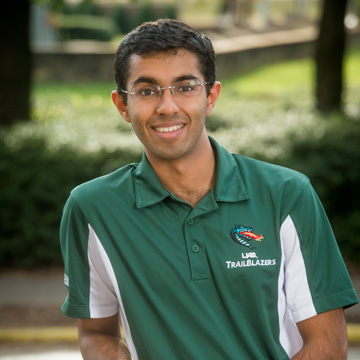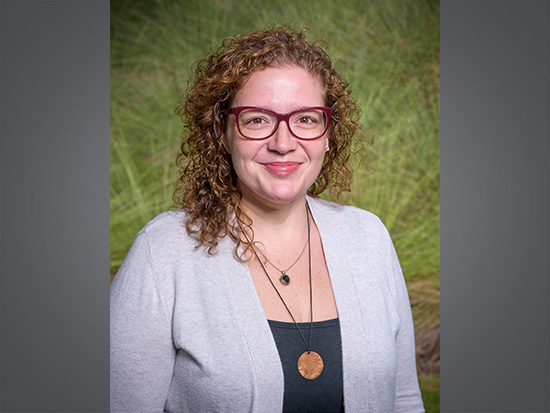Hriday Bhambhvani, a senior majoring in the Undergraduate Neuroscience Program, writes about his experiences in the program and at UAB.
When I was around seven years old, a close friend of mine was diagnosed with schizophrenia. Our shared experiences sparked in me a persisting curiosity about the brain and neuropsychiatric illness, and I came to understand how severe a toll such disorders can take on the affected individual and even the most conscientious families. Like his brother and parents, I felt a desperate desire to restore my friend to the exuberant character he had been. It was frustrating that I could contribute nothing apart from my companionship — valuable but insufficient to make a meaningful impact.
 As I was a senior in high school, I seized an opportunity to begin working in the lab of Dr. James Meador-Woodruff, Chair of UAB School of Medicine’s Department of Psychiatry and Behavioral Neurobiology, where I still work. Here, I had the incredible opportunity, arising directly out of the Undergraduate Neuroscience Program’s network, to explore the molecular mechanisms that underlie schizophrenia. I’ve been fortunate enough to publish my work as first author around a year ago, and am close to submitting another first author manuscript. Apart from research engagements at UAB, I’ve had the opportunity to conduct research at the California Institute of Technology as an Amgen scholar, and the National Institutes of Health as a summer intern. At CalTech I worked under Professor John Allman, where we primarily explored the expression and localization of protein interacting with c kinase 1 (PICK1) in autism using a tissue labeling technique known as immunohistochemistry. At the NIH I worked under Dr. Wei Lu to explore the function of novel protein shisa7. These engagements have affirmed that I want translational research of neuropsychiatric illness to be a significant part of my career.
As I was a senior in high school, I seized an opportunity to begin working in the lab of Dr. James Meador-Woodruff, Chair of UAB School of Medicine’s Department of Psychiatry and Behavioral Neurobiology, where I still work. Here, I had the incredible opportunity, arising directly out of the Undergraduate Neuroscience Program’s network, to explore the molecular mechanisms that underlie schizophrenia. I’ve been fortunate enough to publish my work as first author around a year ago, and am close to submitting another first author manuscript. Apart from research engagements at UAB, I’ve had the opportunity to conduct research at the California Institute of Technology as an Amgen scholar, and the National Institutes of Health as a summer intern. At CalTech I worked under Professor John Allman, where we primarily explored the expression and localization of protein interacting with c kinase 1 (PICK1) in autism using a tissue labeling technique known as immunohistochemistry. At the NIH I worked under Dr. Wei Lu to explore the function of novel protein shisa7. These engagements have affirmed that I want translational research of neuropsychiatric illness to be a significant part of my career.
Outside of the lab, I’ve been heavily engaged with ACT Initiative, an outreach organization I founded. We work to provide free standardized test preparation services to students in local, inner-city high schools. Frankly, more than any other activity throughout undergrad, I am most proud of this one. I am continually amazed by my students for defying the narratives generally prescribed to those from low-income families and demonstrating that one's zip code need not dictate one's opportunity for advanced education. I grew up in a rural town, where I developed an intimate understanding of how low-income school systems are often ill-equipped to prepare their students for standardized tests. Thus my experience spearheading ACT Initiative was particularly rewarding, personal, and confirmed that I would love for teaching to be a permanent part of my career.
This August I will begin medical school at Stanford University, after which I hope to pursue a tripartite career in academic medicine that aims to educate, conduct research on neuropsychiatric illness, and care for patients. I owe a lot to so many individuals at UAB — Dr. Meador-Woodruff for the unending support and mentorship, Drs. Gavin and Wilson for their guidance, Mike and Rusty of the University Honors Program for continually expanding my horizons, and many more. The opportunities and friends borne out of the UNP have been truly one-of-a-kind.
As my time as an undergraduate draws to a close, the most important lesson I’ve learned is intuitive but easily forgotten — always pursue that which brings you the most joy, that with which you have an unrelenting curiosity.


